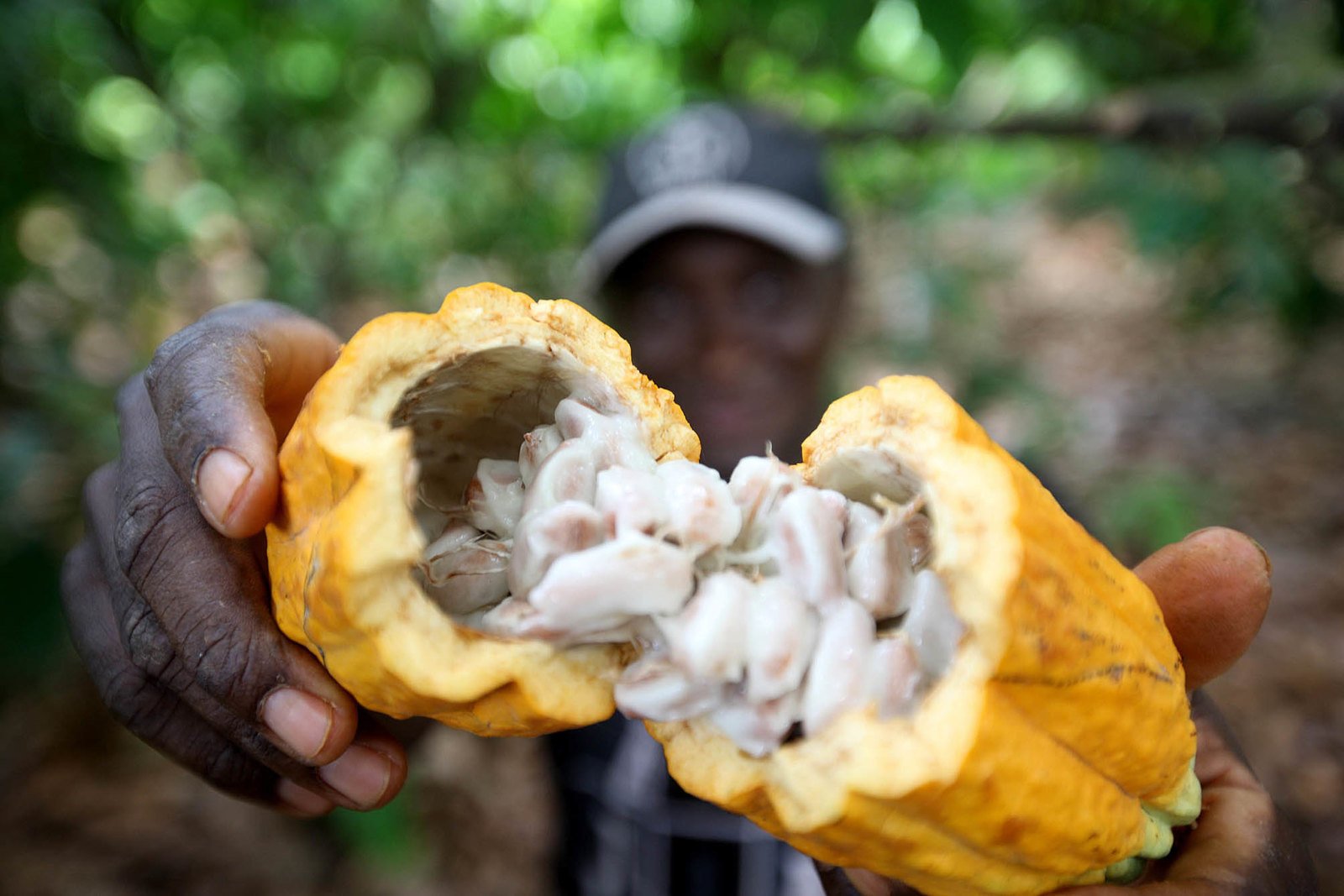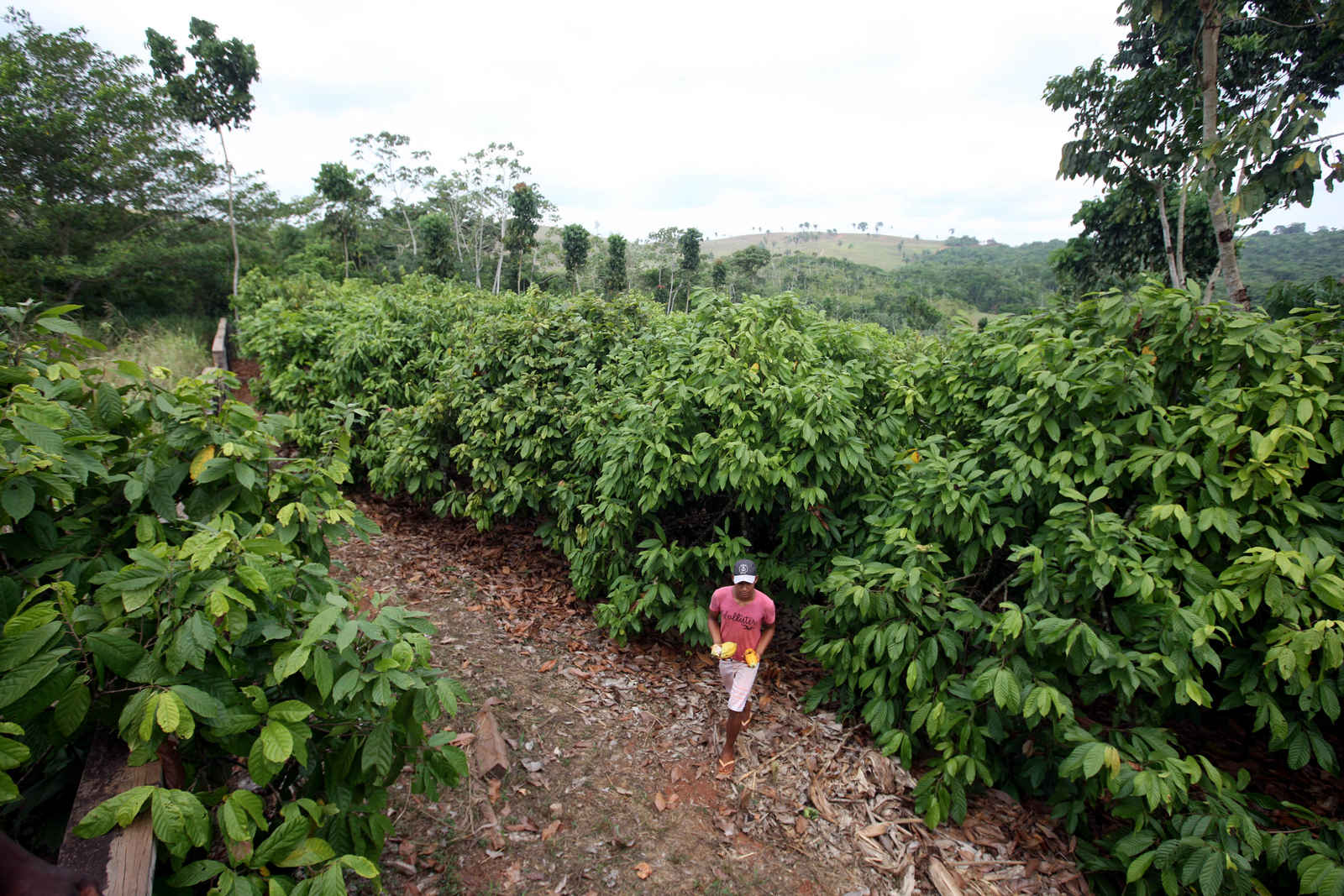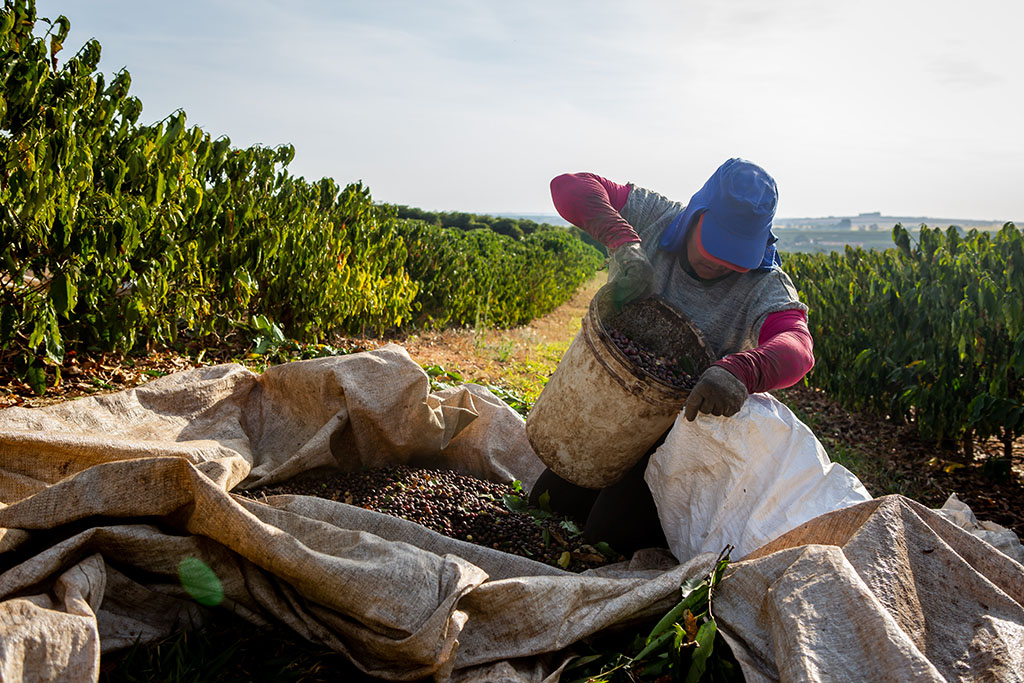
Multinational company Cargill was convicted by a first-level Labour Court for slave and child labour practices on its suppliers’ cacao plantations in Brazil. The company can still appeal the decision.
The conviction is the result of a Public Civil Action – a lawsuit filed by the Labour Prosecution Service (MPT) – demanding that the entire cacao supply chain is held accountable, including industries that purchase raw material from rural producers caught with violations.
In a sentence handed down on September 18, the 39th Labor Court of Salvador ordered the company to pay R$ 600,000 as compensation for collective moral damages. The money will be used to fund child protection projects. The Prosecution Service had asked for R$ 119 million. Founded in the United States, Cargill processes much of the cacao produced in Brazil. In a statement sent to Repórter Brasil, the company says that “it does not tolerate human trafficking, forced or child labour in its operations or supply chain.” The company also claims that it applies “immediate measures” to suspend suppliers caught with violations. Read the full note.
Prosecutors’ lawsuit was based on international treaties
According to prosecutors, Cargill neglected “its legal duty to restrain and prevent” its suppliers from using child labour or subjecting workers to conditions typical of slavery. The Prosecution Service filed the lawsuit after compiling several cases at the multinational’s suppliers. For the prosecutors’ who filed the lawsuit, Cargill failed to adopt mechanisms to prevent the problems from recurring. even after these violations were found.
“Companies that profit and benefit from slave and child labour say they have no direct or formal employment relationship [with suppliers]. Now we’ve changed our approach and started demanding their responsibility [for monitoring compliance with labour laws], says Margaret Matos de Carvalho, one of the prosecutors responsible for the lawsuit against Cargill. She also says that the Public Civil Action requires the company to closely monitor working conditions on its suppliers’ properties.
Holding cacao industry giants accountable is part of a strategy by the Prosecution Service, inspired by Brazil’s commitments under international treaties. Prosecutors are also considering the federal executive order that sets Brazil’s National Guidelines on Business and Human Rights. The aim is to combat human rights violations and encourage ethical relationships throughout a supply chain that benefits from slave or child labour.
History of violations at suppliers

The lawsuit against the multinational was filed in 2021 by a group of prosecutors fighting child labour and slavery. They listed some inspections that confirmed cases of slave or child labour among Cargill suppliers.
In 2010, 42 workers were rescued from a cacao farm that supplied the company in Medicilândia, Pará – including three minors who used to help their parents with harvesting. In 2013, another Cargill supplier in the same city was notified for using child labour. In 2019, authorities found out that the farm was still exploiting children.
In her decision, Judge Naiara Lage Pereira Bohnke argued that “the respondent [Cargill] is not being held directly responsible for the violations of labour rights observed throughout the cacao supply chain.”
Still according to the ruling, the Prosecution Service calls for Cargill’s conviction “since the company, given its power for exercising control and influence, should not fail to act in the face of that clear reality – of modern slavery and child labour – which tends to be perpetuated if effective and proper actions are not taken.”
“Cargill was convicted for allowing slave and child labour. The company pretends not to see it. That’s why they are being convicted. It’s their responsibility to conduct due diligence,” argued Prosecutor Carvalho in an interview with Repórter Brasil.
Formalizing contracts with suppliers
In the lawsuit, lawyers for Cargill argued that the company could not be held responsible for the practices of its suppliers because it does not have any employment relationship with cacao producers and also because it does not have “police authority” to inspect farms.
The multinational also claimed that its contracts with suppliers require that they declare that they do not use child labour or modern slave labour.
In addition to compensation, the Court also gave Cargill 30 days to formalize contracts with cacao producers and suppliers, including social clauses to prevent the use of child labour. The multinational also has 60 days to create a control mechanism “within its purchasing departments.”
The court also ordered the company to create, within three years, a permanent advertising campaign against child and slave labour.
Production concentrated in Pará and Bahia
A Repórter Brasil report showed that at least 148 workers were rescued from cacao farms during inspections conducted by the Federal Government between 2005 and 2019. Violations are concentrated in Bahia and Pará – Brazil’s top cacao producers.


